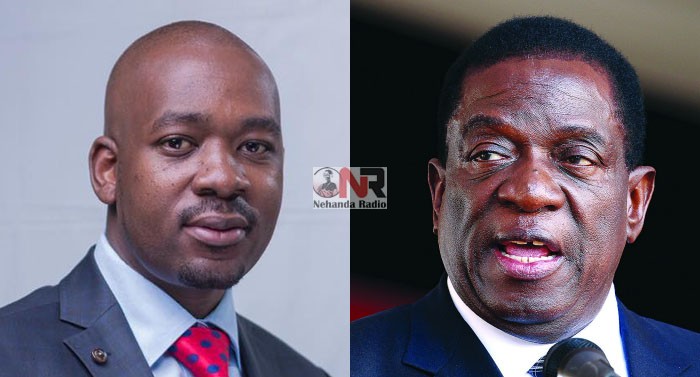
“The presidential race tightened a month ahead of July 30 voting among registered likely voters, and incumbent Mnangagwa’s lead over challenger Chamisa (from previous researches) dropped from 11 to just three percentage points between early May and early July,” the survey results show.
According to the Constitution, the winner must get 50 percent plus one vote.
Unlike the other pre-election baseline surveys in April and May by the Pan-African Forum Limited (PAFL) and Trends and Insights for Africa (TIFA) projecting an outright victory for Mnangagwa, “the new findings point toward a close election outcome denying the winner a broad electoral mandate, and confirm majority support for a GNU”.
The Afrobarometer findings also reveal that Chamisa appears to have benefited from a slight increase in party identification and a popular perception that he would be the candidate better able to address Zimbabweans’ top campaign issue — job creation.
The results also suggest that 26 percent of urbanites trust Mnangagwa while in rural areas 48 percent have faith in him.
Chamisa, on the other hand, is trusted by 49 percent of urban dwellers but trails in rural areas where he garnered 30 percent.
According to the report, while the proportion of Zimbabweans who fear becoming victims of electoral violence dropped by eight percentage points since May 2018, the electorate is still wary of the possibility of political violence after the polls.
“Zimbabweans remained apprehensive about the possibility of electoral manipulation: As was the case in May 2018, significant minorities were worried about ballot secrecy, counting of votes, announcement of incorrect results, post-election violence, and the military not accepting election results.
“More than four in 10 Zimbabweans (43 percent) said they personally feared becoming a victim of electoral intimidation or violence.
“The decline in expressions of political fear, the report say, is reinforced by a growing majority (68 percent) who said the current government is performing “fairly well” or “very well” at preventing electoral violence (up from 63 percent in May).”
In May, PAFL — linked to a Zanu PF apologist, Nyekorach Matsanga — claimed that Mnangagwa would win 70 percent of the vote if elections were held at that point in time, while Chamisa would only win 24 percent of the vote.
Earlier, TIFA had given Mnangagwa 68, 5 percent of the vote against Chamisa’s 19,5 percent.
In contrast, a Mass Public Opinion Institute and Afrobarometer, however, predicted at the time a closely contested presidential race between Mnangagwa and Chamisa, saying the Zanu PF leader, aged 75, could get 42 percent of the vote, while his rival who turned 40 on February 2, could garner 31 percent.
There have been reports of discussions to shepherd the country’s main political actors into a second GNU to avoid possible tensions after the July 30 ballot which could exacerbate a hugely polarised political atmosphere currently obtaining in the country.
Under the facilitation of academic, Ibbo Mandaza, there were exploratory discussions last month. These discussions could be continued depending on the response from the main parties, especially Zanu PF and the MDC.
“We have been facilitating the talks since 2015 and, in light of what we think would be a disputed election, we are focusing on a post-election transitional authority so as to bring about peace and reconciliation, and a return to constitutionalism which includes the army going back to the barracks.
“We are aware that some parties are already talking about a GNU and we will talk to Zanu PF when the time comes. This is a platform where concerned parties are also talking to the region and the international community for re-engagement. We spoke to representatives of all (the) political parties but there were no principals,” said Mandaza at the time, without specifying the parties that took part in the talks. Daily News.






